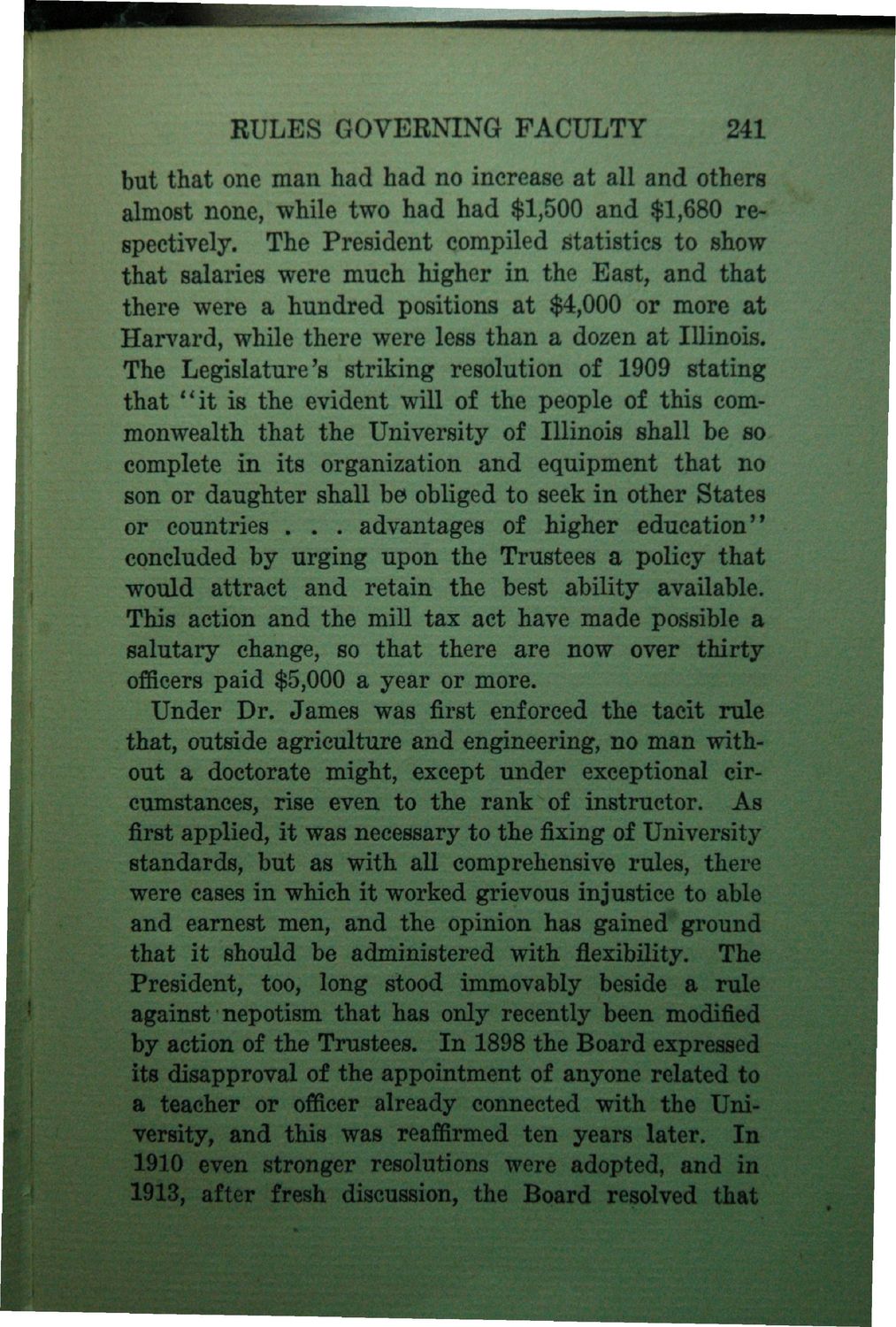| |
| |
Caption: Book - History of the University (Nevins)
This is a reduced-resolution page image for fast online browsing.

EXTRACTED TEXT FROM PAGE:
RULES GOVERNING FACULTY 241 but that one man had had no increase at all and others almost none, while two had had $1,500 and $1,680 respectively. The President compiled statistics to show that salaries were much higher in the East, and that there were a hundred positions at $4,000 or more at Harvard, while there were less than a dozen at Illinois. The Legislature's striking resolution of 1909 stating that " i t is the evident will of the people of this commonwealth that the University of Illinois shall be so complete in its organization and equipment that no son or daughter shall be obliged to seek in other States or countries . . . advantages of higher education" concluded by urging upon the Trustees a policy that would attract and retain the best ability available. This action and the mill tax act have made possible a salutary change, so that there are now over thirty officers paid $5,000 a year or more. Under Dr. James was first enforced the tacit rule that, outside agriculture and engineering, no man without a doctorate might, except under exceptional circumstances, rise even to the rank of instructor. As first applied, it was necessary to the fixing of University standards, but as with all comprehensive rules, there were cases in which it worked grievous injustice to able and earnest men, and the opinion has gained ground that it should be administered with flexibility. The President, too, long stood immovably beside a rule against nepotism that has only recently been modified by action of the Trustees. In 1898 the Board expressed its disapproval of the appointment of anyone related to a teacher or officer already connected with the University, and this was reaffirmed ten years later. In 1910 even stronger resolutions were adopted, and in 1913, after fresh discussion, the Board resolved that
| |